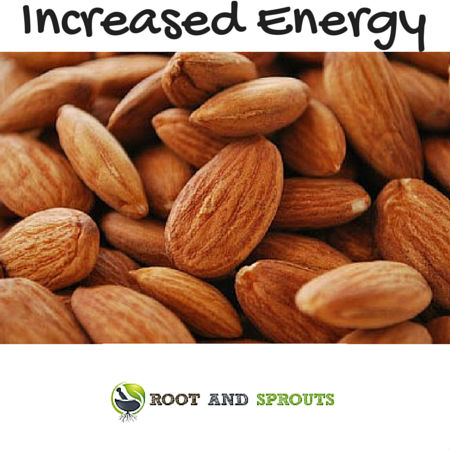Eliminate the Fear of Fat

Take a stroll through your local grocery store and you’ll see a multitude of products which claim to be a low-fat addition to a healthy diet.
We deprive ourselves into the suffering that low-fat diets ultimately create. Our bodies need fat, and there is ample evidence that a high fat, low carb diet is the optimal way to propel weight loss and regain good health.
But doesn’t saturated fat cause high cholesterol, high blood pressure, coronary artery disease and heart disease?
Nope, the myth has been busted and there is plenty of scientific evidence to back it up (1) (2)(3)(4)(5).
There’s no denying it anymore, saturated fat does not cause heart disease and never has.
A pivotal meta-analysis of more than 350,000 people tracked for 14 years, 11,000 of whom developed heart disease found no correlation between saturated fat intake and heart disease or stroke (6).
Another recent study which included 150 men and women of diverse backgrounds were designated to follow either a low fat diet or low carb diet without counting calories for one year.
The findings of the study were shocking to many as those on the low carb diet lost 8% more body fat and actually gained lean muscle mass without additional exercise. Those on the low fat diet lost less weight and lost muscle mass (7).
Fat Propaganda
The food pyramid has long been used as a guide to healthy eating. Recommended is a low fat diet with plenty of grains and carbohydrates (8).
The only thing the food pyramid got right is that we should be eating 5-9 servings of vegetables and fruit daily.
Conflicting research and opinions run rampant in the health world. Most nutritionists are taught to remain strictly in line with the food pyramid principles, even if plenty of studies point out quite the opposite.
Doctors, most who’ve perhaps taken 1 nutrition course in the 8 years of schooling, mostly adhere to the governments recommendations, but at what cost?
The fight against saturated fat began in the 1970’s when Ancel Keys “The Seven Countries” study was published. Researchers found a correlation between saturated fat and heart disease when analyzing data from 12,000 men in seven countries.
Best Sources of Dietary Fats
The researchers actually had access to data from 22 countries but chose to leave out the countries who ate high quantities of saturated fat yet still had no incidence of heart disease, how convenient.
The deep flaws in this study don’t stop there, as factors like stress, smoking and sugar consumption were completely ignored. Alas, this became the soap box for doctors and nutritionists everywhere to stand on.
At the same time another researcher John Yudkin was finding more and more evidence correlating between high sugar consumption and heart disease.
While Keys was on the cover of Time magazine, Yudkins findings were widely ignored. The diet dictocrats fully embraced the low fat approach and it became the steadfast recommendation from that time onward.

Low fat diets promote a host of problems and offer little in the realm of weight loss aside from unnecessary suffering and struggle.
Not to mention their negative effects on brain health, hormones and overall energy.
While most North Americans are still on the low-fat bandwagon, Sweden became the first nation to recommend a high fat diet for its citizens (9).
More and more prominent health institutions and scientists are recommending people eat more saturated fat and less junk food filled with refined sugars and carbohydrates.
It’s True Trans Fats Are Evil
Trans fats are found in hydrogenated oils, hydrogenation is the process which transforms liquid oil into solid form. This improves shelf life and inhibits the oils from going rancid (10).
Trans fats weren’t even labelled until 2006, as research started to isolate them from saturated fats.
The main difference between saturated fats and trans fats is that saturated fats are naturally occurring and trans fats are man made and unnatural.
How can we group these two very different fats into the same category you might ask?
Myself and many others asked the same questions for many years and the only answer I’ve found is that when corporations have commercial interests at stake, they’ll do just about anything to make sure they won’t be at a loss.
There isn’t much money in a diet rich in nutrients, compared to one which promotes illness and weight retention.
The pharmaceutical industry is counting on people getting sick and the weight loss industry needs people to be fat.
Research surrounding the dangers of trans fats shows they lead to weight gain (11) and some doctors recommend that banning them would save lives (12).
The Diet of Our Ancestors
Sally Fallon, author and long time proponent of ancestral diets and the research done by Weston A. Price on the high fat diets of our healthy ancestors, calls out the fat propaganda in her book Nourishing Traditions.
The diet dictocrats and politically correct nutrition as she calls it, isn’t in alignment with what our ancestors ate and thrived on. According to the research of Weston A. Price, a dentist who studied ancestral cultures long before most of them disappeared, showed in his findings that primitive peoples lack tooth decay, have strong bone formation, and are free of the diseases which plague modern society.
All the while eating mostly animal foods, high in saturated fat (13). To many this sort of diet sounds like a recipe for heart disease, but quite the opposite is true (14)(15)(16)
Tribe Primary Diet Percentage Saturated Fat
Maasai tribe in Kenya/Tanzania Meat, milk, cattle blood 66 percent
Inuit Eskimos in the Arctic Whale meat and blubber 75 percent
Rendille tribe in NE Kenya Camel milk, meat, blood 63 percent
Tokealu, New Zealand territory Fish and coconuts 60 percent
(17)
Why We Need Fat to Thrive
Dietary fat is so important for good health. We require all types of fats, and each has their own role to carry out in our bodies (except trans fat).
Saturated fat in particular is important for maintaining strong bones, a healthy immune system, healthy brain, healthy lungs, proper nerve signalling, better liver health and healthier skin (18).
Saturated fat can also help with weight loss when adhering to a low carbohydrate diet.
Take a stroll down memory lane and remember in biology class what a cell looks like. Cell walls or membranes need to be strong and firm, you don’t want your cell walls to be weak for obvious reasons.
Every single cell in our body has a cell wall which is constructed from both saturated and unsaturated fat and cholesterol.
When we remove dietary saturated fat we take an essential strengthening compound out of our bodies and the cell membranes can become weak.
The risk is even more paramount when instead of consuming natural saturated fats we choose hydrogenated oil products like margarine. A cell membrane cannot be healthy and strong when we consume toxic trans fats (19).
Considering we have about 46 to 68 trillion cells in the human body (20), I’d say its pretty important to be building our cell membranes with the right components.
Hormones
Healthy hormone function is primary in maintaining high levels of energy and vitality. Saturated fat is an integral piece of the hormone puzzle and perhaps why hormonal disorders are becoming more common as we eat less healthy fat.
Saturated fat increases free testosterone levels which leads to more energy, better sex drive and improved muscle mass (21).
A particularly good source of fat for healthy hormones is coconut oil, this saturated fat helps to support thyroid function and nourishes the adrenal glands, which easily get zapped from too much stress.
Brain Power
Have you ever wondered what your brain is made from? Our brains are complex and science barely grasps their intricate functioning. Around 60% of your brain matter is composed of fats!
When our diets are filled with good fats, our brains can make high quality nerve cell membranes (22). Nourish your brain with high quality omega-3 fatty acids and a healthy dose of saturated fat every day.
Energy

Saturated fats in particular break down and release in the form of energy very slowly (23). This is one reason people love bulletproof coffee (24) so much, it’s not that butter makes coffee taste amazing, its that butter gives a stable long term energy source for the body to utilize all morning.
Nervous System
Okay picture this, your heartbroken and feeling downright pathetic slumped on the couch with a pint of ice cream. Did you ever think the fat in that ice cream is actually working in your brain to make you less hungry and less sad.
Researchers thought this may be the case, so they did a controlled trial with 12 individuals. The individuals were put into 4 groups, they were asked to rate their level of hunger before undergoing the experiment. (25)
Can what you eat make you feel better?
The study involved using MRI to measure the activity in a persons brain when they were fed fat or salt water through a stomach tube. They played sad music and showed sad faces for the 2 sad groups and neutral music with neutral faces for the neutral groups.
Group 2 Neutral emotions, with fat
Group 3 Sad emotions, no fat
Group 4 Sad emotions, with fat
The findings of this study was markedly less hunger and sadness in the sad group that was fed fat. Researchers found a correlation between emotions and hunger and that eating fat can actually make you less sad.
There was also increased blood flow to many areas of the brain with the sad group that was fed fat.
This study partially explains why people get so grumpy when they stop eating fat. Lipids have a very important role to play in a healthy nervous system (26).
Digestion
Fats are important for proper assimilation of foods, since there are so many vitamin which are only absorbed when taken with a source of fat.
Cholesterol, inherent in fatty foods, is highly concentrated in the cells of the intestinal lining and it’s a necessary precursor for bile acids which we need to break down long chain fatty acids (27).
Immune Health
The healthy lauric acid rich coconut oil is a great way to boost your immune health and destroy foreign bacteria and viruses.
Saturated fat plays an important role in the ability for white blood cells to recognize foreign invaders.
Eat Fat, Lose Fat
This may sound counterintuitive, but it’s the truth, if you want to lose weight, eat more saturated fat and get rid of excess sugar and carbohydrates.
One study compared three groups of obese people, one group consumed 90% calories from fat, another group 90% calories from carbohydrates and the last group 90% calories from protein. Surprise surprise, the group consuming the most fat also lost the most weight (28)!
When we turn to a low fat diet for our weight loss dilemmas, we’re forced to replace those calories, usually with carbohydrates which only supply short term energy and offer little in nutrients.
The body goes into starvation mode since it assumes you are starving and losing weight is like rounding up a flock of wild geese.
On the contrary, when we provide our bodies with a high quality fat source, it thinks there’s nothing to worry about and excess weight just falls off.
It really doesn’t have to be this tortuous affair where you go to bed hungry every night. Forget calorie counting, just ditch the excess sugar and carbs, increase your saturated fat intake and watch the weight disappear.
Ketogenic Diet
The ketogenic diet is similar to the paleo diet but avoids nearly all carbohydrates, relying heavily on high fat and protein rich foods.
The goal of this diet is to get the body to entering extreme fat burning mode, aka ketosis. When the body enters ketosis, cravings disappear and you are in a state of high energy all the time while the body burns away excess fat stores.
This is the goal of popular diet programs like the zone and Atkins which work very well especially for people with a lot of weight to lose.
Ditch the Carbs
While having a diet high in healthy fats is a fabulous way to improve health, vibrance and energy, pairing it with high carbs is a recipe for weight gain. Because of the calorie rich nature of saturated fats, we really don’t need to be eating a large amount of carbohydrates.
Embrace healthy fats, but avoid eating excess refined carbs alongside them if you don’t want to gain weight.
Not All Saturated Fat is the Same
While it’s been proven time and again that red meat doesn’t contribute to heart disease, processed meats do (29). Avoid luncheon meats and convenience foods like hot dogs and opt for higher quality fresh meat instead.
It’s crucial to grasp the difference between conventionally raised meat and poultry and free range organic meat and poultry.
They are not the same thing and spending the extra money on the latter is worth it. Most people know the difference between organic and conventional vegetables, but modern meat production operations are covert and lesser emphasized in the media.
The reason for eating organic or free range meat, poultry and dairy is mostly because toxins are stored in the fat.
CAFO (Concentrated Animal Feeding Operations) (30) are not only unethical but also host to a variety of nasty environmental toxins inherent in the genetically modified feed and often the animals are given growth hormone and antibiotics.
Avoid this type of meat at all costs.
Healthy Nutrient Dense Substitutions
While it can be challenging to change your lifestyle, ultimately you’ll be happier in the end. There are numerous healthy options instead of relying of refined carbohydrates as the bulk of your meals, choose healthy slow releasing carbs like sweet potato, cauliflower, squash and root vegetables. Instead of refined sugar, always opt for honey, maple syrup or coconut sugar.
Cooking fats should always be saturated, many health conscious folks like to use olive oil but it is susceptible to degradation at high temperatures.
Cooking with saturated fats is the best way to avoid changes to your oils molecular structure and its also far more delicious.
What do you think? Do you have a favorite fat to cook with and smother your vegetables in? If you’re looking to get started we recommend beginning with a detox or cleanse.
test

